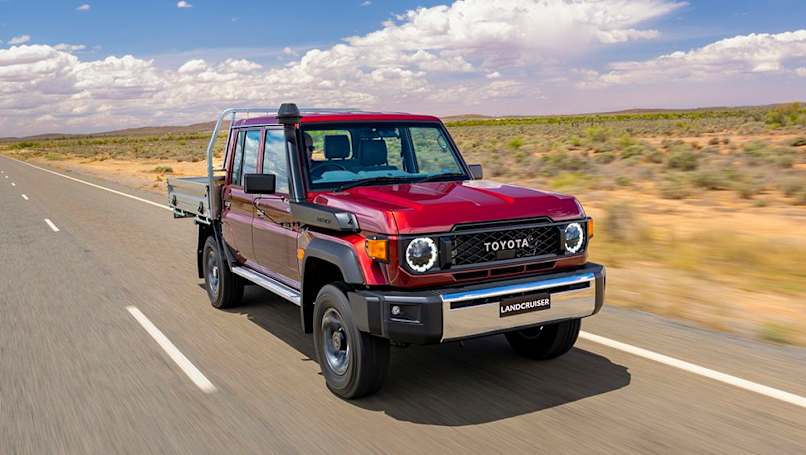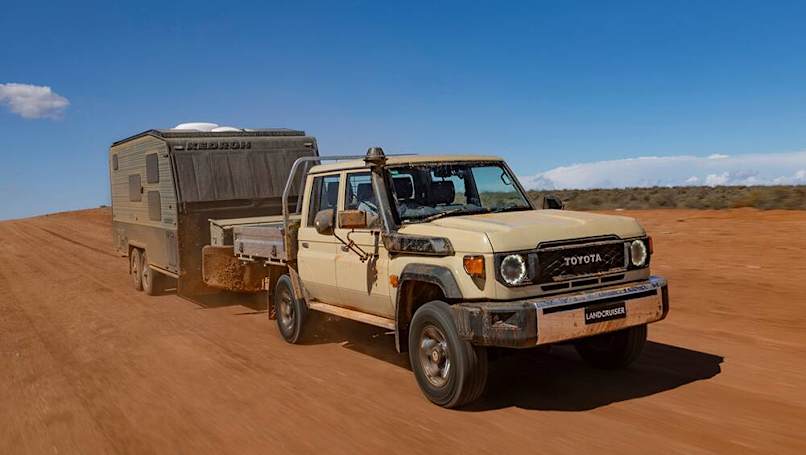
Iconic US car brand doubles down on Australia: 2026 Cadillac Optiq and Vistiq electric SUVs coming to rival BMW iX3 and Volvo EX90
Cadillac likes its chances in the Australian market. Before commencing...
Browse over 9,000 car reviews

Look, I get it, a lot of people had a deep and serious love of the 4.5-litre V8 turbo diesel engine that powered the iconic Toyota LandCruiser 70 Series for four decades. I can hear your keyboards already firing up in the comments section to tell me what an idiot I am, but hear me out…
Time had run its course for this engine and newer, superior technology was available to replace it. Sure, the die-hards should take a moment to mourn its passing, but this isn’t a sad day because a better option has been made available in its place.
There was no reason for Toyota to continue to make and offer what is, to be blunt, the most underwhelming V8 engine I have ever driven. Despite its sizeable capacity and cylinder count the engine made just 151kW of power and 430Nm of torque, which doesn't sound so bad until you realise the 2.8-litre four-cylinder turbo diesel makes 150kW/500Nm, a significant 70Nm advantage.
Once again proving the saying ‘there’s no replacement for displacement’ is a lie in this day and age, Toyota has perfectly demonstrated the rate of change in the car industry and we should celebrate it rather than chastise a sensible business decision or get upset and angry that a piece of out-dated technology has been replaced.
Frankly, Toyota should have made this change years (decades) ago. The LandCruiser 70 Series is not everyone’s cup of tea, but for long, arduous trips into some of Australia’s most remote areas there are few vehicles that can match it. I perfectly understand the sentimental attachment people have to the V8, but having driven the V8 and four-cylinder back-to-back in the same conditions, there’s simply no logical argument for keeping such an antiquated engine.

The four-cylinder not only provides more torque, and therefore more pulling power, it tows just as strongly as the V8 and is available with an automatic transmission. And that’s not all, it manages to pull stronger and use less fuel in the process, more than 1.0-litres per 100km better than the V8. Over the course of the 70 Series’ massive 130-litre fuel tank the difference is more than 150km between refuelling, which is a huge difference in remote areas.
Yes, there are questions around when exactly Toyota knew it would make this inevitable decision that my colleague Andrew brought up previously. But the bigger question for me is - why was Toyota allowed to get away with this for so long? The entire 70 Series seems to me to be a case study in supply and demand setting the cost, because it just simply doesn’t make sense in my brain that a largely unchanged 40-year-old designed vehicle can cost vastly more than the newer, more complex HiLux…

That speaks to the passionate following the LC70 has, and how emotion can overwhelm logic.
But, before you rip me to shreds in the comments section ask yourself this: what other car could get away with such ageing technology? Do you think Holden fans would have been happy if the Commodore VF SS had launched with the same 100kW 4.2-litre V8 they were offering back in the 1980s? Let me know your thoughts in the comments…
Comments